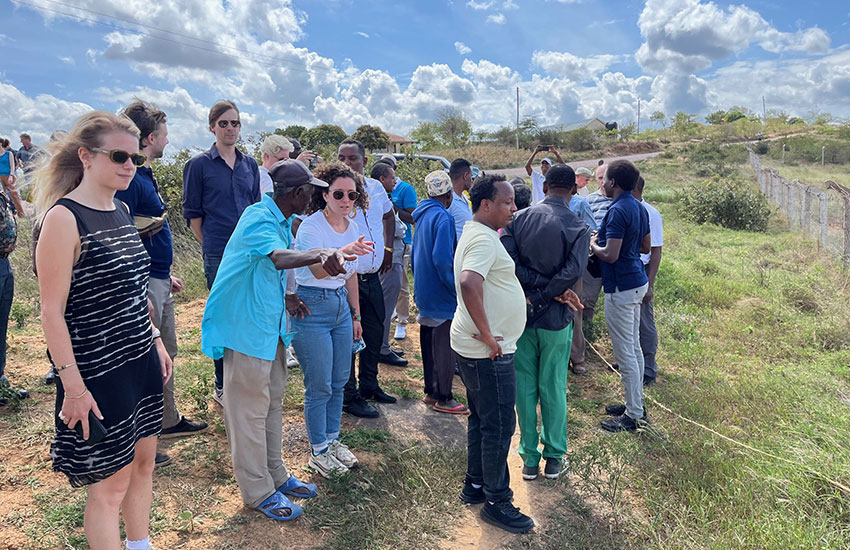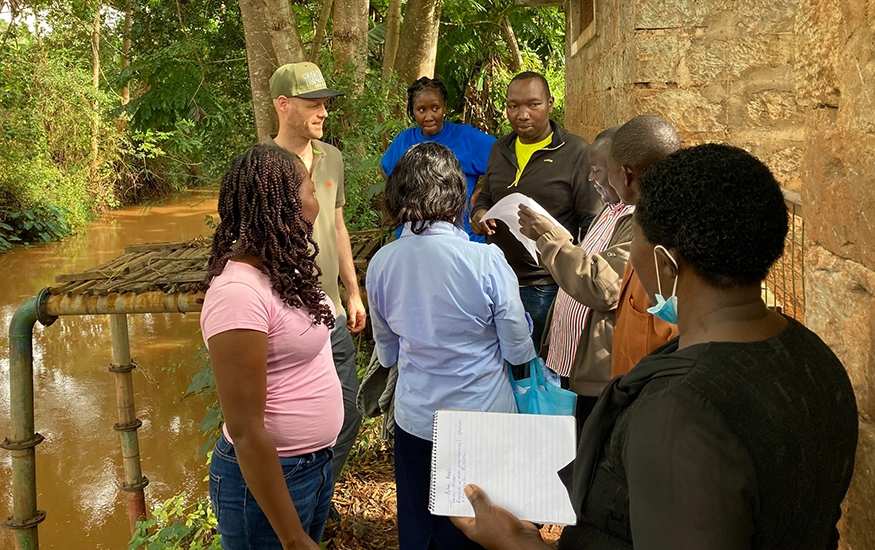From 8 to 11 July, a Regional Meeting took place in Mombasa, Kenya, gathering Blue Deal partnerships from 7 African countries. They discussed and developed their knowledge on sustainable financing of Integrated Water Resources Management.

The 4-days programme covered topics on Integral Water Resources Management (IWRM): water pricing, finances, and nature-based solutions, which were discussed during workshops, interactive sessions, plenary discussions, break-out groups and a field visit. Furthermore, the cooperation focused on bringing in external funding for water management.
Why an African Regional Meeting?
The African Regional Meeting was organised to further exchange knowledge after a few African Blue Deal partners discovered their mutual challenges in sustainable financing at the first Blue Deal Congress in June 2023 in Amsterdam, the Netherlands. The seeds were planted for the idea to further explore possibilities to share knowledge to improve their current strategies on sustainable financing of IWRM. As a result, the African Blue Deal Regional Meeting was drawn up.
7 countries
Blue Deal partnerships from 7 countries all over Africa joined the meeting: Burkina Faso, Eswatini, Ethiopia Abbay and Ethiopia Awash, Ghana, Kenya, Mozambique and South Africa. Representatives of Nature for Water, the Global Water Partnership, and the international Association of Netherlands Municipalities (VNGi) were present as partners during the event and shared their expertise.
Results
During the week, the 40 participants shared their best practices, creative ideas, common challenges and important lessons that they learned in establishing their own route towards sustainable financing. Some general conclusions and valuable insights are drawn up from the African Regional Meeting in Kenya, Mombasa, that covered the discussions on sustainable financing of IWRM. These are, among others:
- Insight in and knowledge of water users, regulations, licensing and enforcement are essential to achieve sustainable financing of catchment management.
- In-country funding and fundraising experts and expertise are needed in the Blue Deal partnerships to attain external funding.
- We cannot realise water management on our own: we need the community, the partnerships and other institutions outside of the water sector to join forces.
- The employees of the Dutch water authorities who attended gained knowledge about community-based working, involving the public in decision-making processes and they gained insights in working methods around water pricing.
Plans for improvements
The partnerships that were present are committed to improve their actions when it comes to:
- stakeholder engagement (water users) in the pricing concept;
- the exchange of data collection and working methods between countries, as it is essential to set tariffs and fees;
- awareness creation and communication in a social inclusive way, around the advantages and the value of water;
- lobbying within the countries: to become more visible at national and local government level to advocate for water within overlapping sectors/policies.

